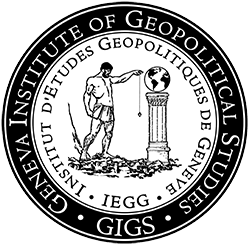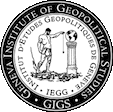Summer University Course Geopolitics
18th Annual Summer University Course
Geopolitics
Geneva
Monday 7 July – Friday 11 July 2025
Geopolitics_Summer_Course_Geneva_Brochure
The principal objective of this study programme is to introduce the main concepts of geopolitics. The course adopts a multidisciplinary approach that incorporates strategic, geographic, historic, cultural and economic dimensions to facilitate a more profound understanding of contemporary international relations. Conferences will be held by leading international experts.
Target group of participants: Persons working for International Organisations and government agencies, diplomats, university students, people working in various economic sectors, and other interested individuals.
PROGRAMME HIGHLIGHTS AND LEARNING OUTCOMES
• Develop the ability to apply the geopolitical analysis method in different case study situations;
• Integrate geopolitical factors and foresight into decision-making processes;
• Participate actively in an interactive and non-conformist course;
• Develop your professional networks and exchange views with course participants having different national, cultural and professional backgrounds.
Dates: Program starts on Monday 7 July and ends on Friday 11 July 2025
Schedule: Conferences take place between 9AM-12 PM and 2:00 -5:00 PM in Geneva.
Location: Domaine de Penthes, 18, Chemin de l’Impératrice, Geneva, Switzerland.
Language: English
Certificate of participation will be awarded by GIGS upon completion of the course.
Tuition fee 1’700 CHF for professionals and 850 CHF for students.
Tuition fee does not cover travel, accommodation, meals and health insurance.
GIGS does not offer financial aid to attend its seminars.
Application deadline: 15 April 2025
LECTURES
Geopolitical Schools of Thought
► David Criekemans
Geopolitical Factors of Switzerland
► Alexandre Lambert
Introduction to Strategy
► Alexandre Vautravers
Enduring and Variable Factors of Geopolitical Analysis
Interactive Geopolitical Exercise: Analysis, Foresight and Strategic Choices
► Gyula Csurgai
Strategic Foresight and Geopolitical Scenario Building
► Gyula Csurgai
Geopolitics of Energy
► David Criekemans
Geoeconomics and Power Projection
► Gyula Csurgai
The Belt and Road Initiative in an Evolving Geoeconomic Context
► Alexandre Lambert
Geopolitics of Religions
► Manlio Graziano
The Transformation of War in an Evolving Geopolitical Context
► Bernard Wicht
Lecturers:
David Criekemans, holds a Doctorate on Geopolitical Schools of Thought and Master Degrees in Political Sciences (from the University of Antwerp), and in Public Administration (from the Catholic University of Leuven), Belgium. Currently, he is an Associate Professor in “Belgian and Comparative Foreign Policy” (at the University of Antwerp) and in International Relations (at the University College Roosevelt in the Netherlands). He has taught Geopolitics at the Royal Military Academy in Brussels. Main research areas of Dr. Criekemans’ are: geopolitical schools of thought, geopolitics of energy, regionalism and sub-state diplomacy. He is lecturer and member of the Scientific Council of GIGS. Dr. Criekemans is author of several studies and books in the field of geopolitics including an in-depth study on the history of geopolitical thought from 1890 till present: “Geopolitics, ‘Geographic Consciousness’ of Foreign Policy?”, Publishing House Garant / Maklu (Antwerp). Professor Criekemans is chief editor of the Brill Series “Geopolitics and International Relations”.
Gyula Csurgai, holds a Doctorate from the University of Geneva. He obtained Degrees in Political Science from the University of Concordia (Canada) and the University of Toulouse (France) and Postgraduate Diplomas in European Studies and Philosophy from the University of Geneva. He is founding Member and Director of the Geneva Institute of Geopolitical Studies. Dr. Csurgai has been teaching Geopolitics, Geoeconomics and Economic Intelligence for over 20 years at different universities in Switzerland and in other countries. He has participated in several international research projects and has provided expertise to a number of international organizations, governments and private corporations. Dr. Csurgai published several books and articles in geopolitics, geoeconomics and economic intelligence.
Manlio Graziano,holds a doctorate from the University of Grenoble. He teaches Geopolitics at the American Graduate School of International Relations and Diplomacy in Paris, and at Sorbonne University. He also taught at the “École supérieure de Relations Internationales” in Lyon and the LUISS University in Rome. He is a member of the editorial staff for the journal Outre-terre (Paris) and for the journal Geopolitical Affairs (London), and frequently collaborates with Limes, the Italian Geopolitical Review. He published among others: The Failure of Italian Nationhood: The Geopolitics of a Troubled Identity, Palgrave-Macmillan, New York, 2010; Holy War and Holy Alliance. Religions and Global Disorder in the 21st Century, 2017, Columbia University Press and What Is a Border? Stanford Briefs; 2018.
Alexandre Lambert, holds a Ph.D. in International Relations from the Graduate Institute of International and Development Studies, Geneva. Dr. Lambert has been lead researcher on the Organization for Security and Cooperation in Europe (OSCE) at the Graduate Institute in Geneva, project officer at the Geneva Centre for the Democratic Control of Armed Forces (DCAF), and a civil servant at the Swiss Federal Department of Defense. He also provides independent policy advice to the OSCE Forum for Security Cooperation (FSC), including in the context of its regional operations in the Western Balkans, South Caucasus, and Central Asia. Dr. Lambert has published books and articles in the field of international politics and history and international security. He coauthored the book “The Belt and Road Initiative: Geopolitical and Geoeconomic Aspects, Routledge”, 2021.
Alexandre Vautravers, holds Doctorate in Social, Economic Sciences and History from the Geneva University and the University of Lyon 2, France. Mr. Vautravers is an expert on strategic issues, security, global arms development and trade, and consultant for several Swiss media. He leads research teams for the Swiss Academy of Science and Technology and the Swiss Military History Commission. He is also the Chief Editor of the Swiss Military Review (RMS); Dr. Vautravers published several books on strategic and security issues. Dr. Vautravers has taught international relations and strategy at various universities in Switzerland. Mr. Vautravers was former head of the Department of International Relations at Webster University, Geneva.
Bernard Wicht, holds a BA and a PhD in Law from the University of Fribourg, Switzerland. He was expert appointed to the European Commission and President of the Culture Committee at the Council of Europe. Dr. Wicht has taught strategic studies at Lausanne University’s Institute of Political and International Studies. Mr. Wicht is currently Head of International Affairs of the Swiss Conference of the Heads of Cantonal Public Education. Dr. Wicht published several books on the transformation of war, evolution of strategy and political systems in the long cycle perspective. He is also a lecturer and member of the Scientific Council of GIGS.

